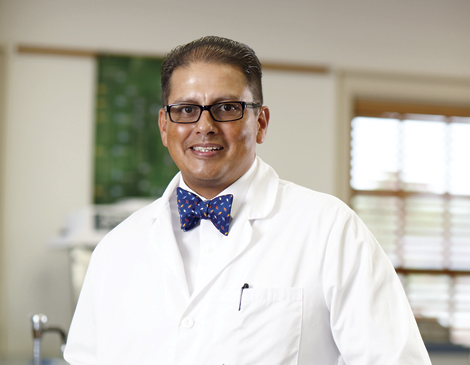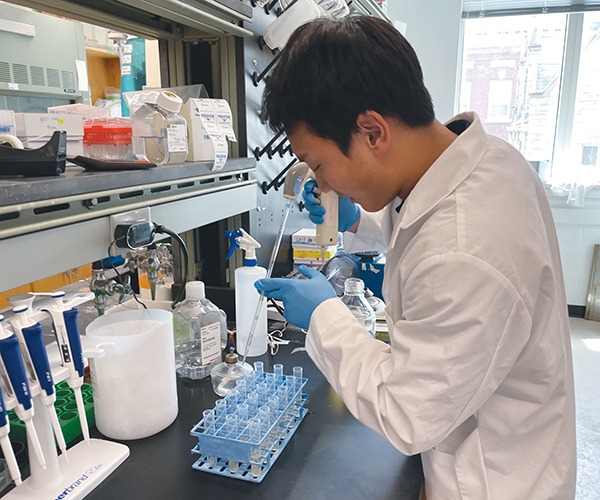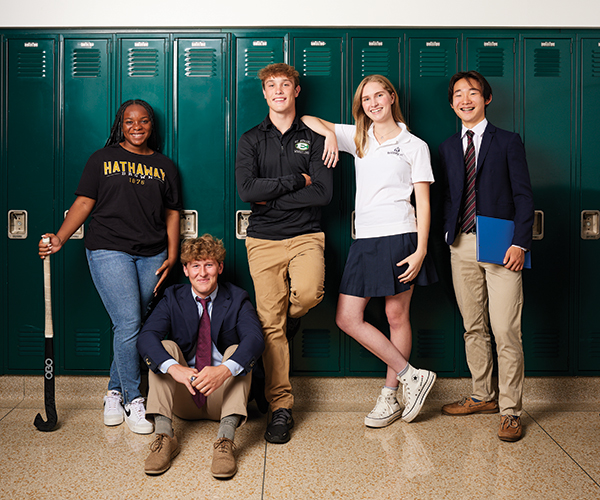If Aguilar’s high school teachers could see him now, they’d be surprised by his career choice. “If you were to go and ask my biology teachers back in high school, they’d say I was a terrible student,” Aguilar says. Luckily for Aguilar, things worked out. “Some of us are late bloomers,” he says. “You don’t always have to get it right away.” Today, Aguilar teaches cancer immunology, pathobiology and biotechnology at Western Reserve Academy. He also serves as acting mentor for the student biomedical research program, which offers opportunities for hands-on research in the classroom and at the Cleveland Clinic.
I actually wanted to be a veterinarian. My bachelor’s is in animal science. I was taking classes, preparing for it, but I couldn’t really get into it that much.
My wife noticed. She’s the one that actually suggested, “You might want to try teaching. Every time we’re at parties you’re always trying to explain things to people and seem to really like that. Why don’t you give it a try?”
So I did, and I fell in love with it.
One of the reasons [Western Reserve Academy] hired me is they wanted me to bring in biotechnology. I noticed the level of students we had. Seeing them work and seeing their dedication, I was like, These students could really do a lot.
I was working on my doctorate at Cleveland State University, but my research was going on at the Cleveland Clinic. I was developing a testicular cancer vaccine.
Every new experiment that I learned there I was like, How can I implement this into my daily teachings over there at Western Reserve Academy?
It was during that time that I came up with setting up some summer internships where our students could go to the Cleveland Clinic and work with scientists there. We started doing that, and that’s still going on. Here we are nine years later.
What surprises me most is how independent they can be if you just let them.
We’ve got research projects going on from developing a prostate cancer vaccine using the same model as my testicular cancer vaccine. I also have another group working on a branch coming out of the testicular cancer vaccine that I developed using a different protein. We also have students that are studying gastric cancer.
We could have the next cure for cancer in one of these students.
That’s what I love about my job the most: seeing them discover science and being excited about it.




